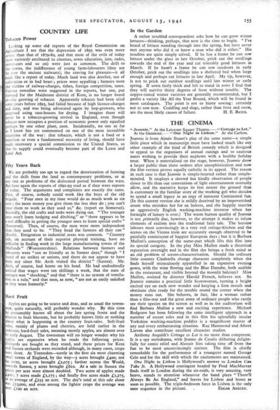COUNTRY LIFE
obacco Power Looking up some old reports of the Royal Commission on griculture I see that the depression of 1893 was even more severe than that of 1879-8% and that most of the evils of today now variously attributed to cinemas, town education, jazz, radio, motor-cars and so on) were just as common. The drift to the towns, the indifference of young farm labourers (they are by now the ancient stalwarts), the craving for pleasure—it all eads like a report of today. Much land was also derelict, out of cultivation or in bad heart ; prices were appalling ; farmers were the victims of railway-charges, tithes, foreign competition, taxes. arious remedies were suggested in the reports, but one, put forward for the Maidstone district of Kent, is no longer heard —the growing of tobacco. Apparently tobacco had been tried some years before 1893, had failed because of high licence-charges d duty, and was being advocated again by hop-growers, who oposed using oast-houses for drying. I imagine there will ver be a tobacco-growing revival in England, even though obacco now occupies a position of economic power only equalled erhaps by one other plant, corn. Incidentally, no one as far as I know has yet commented on one of the most incredible situations of the war : that tobacco, which is not a food or a unition or even a fundamental necessity of living, should have de necessary a special commission to the United States, so hat its supply could eventually become part of the Lease and Lend Act.


























 Previous page
Previous page